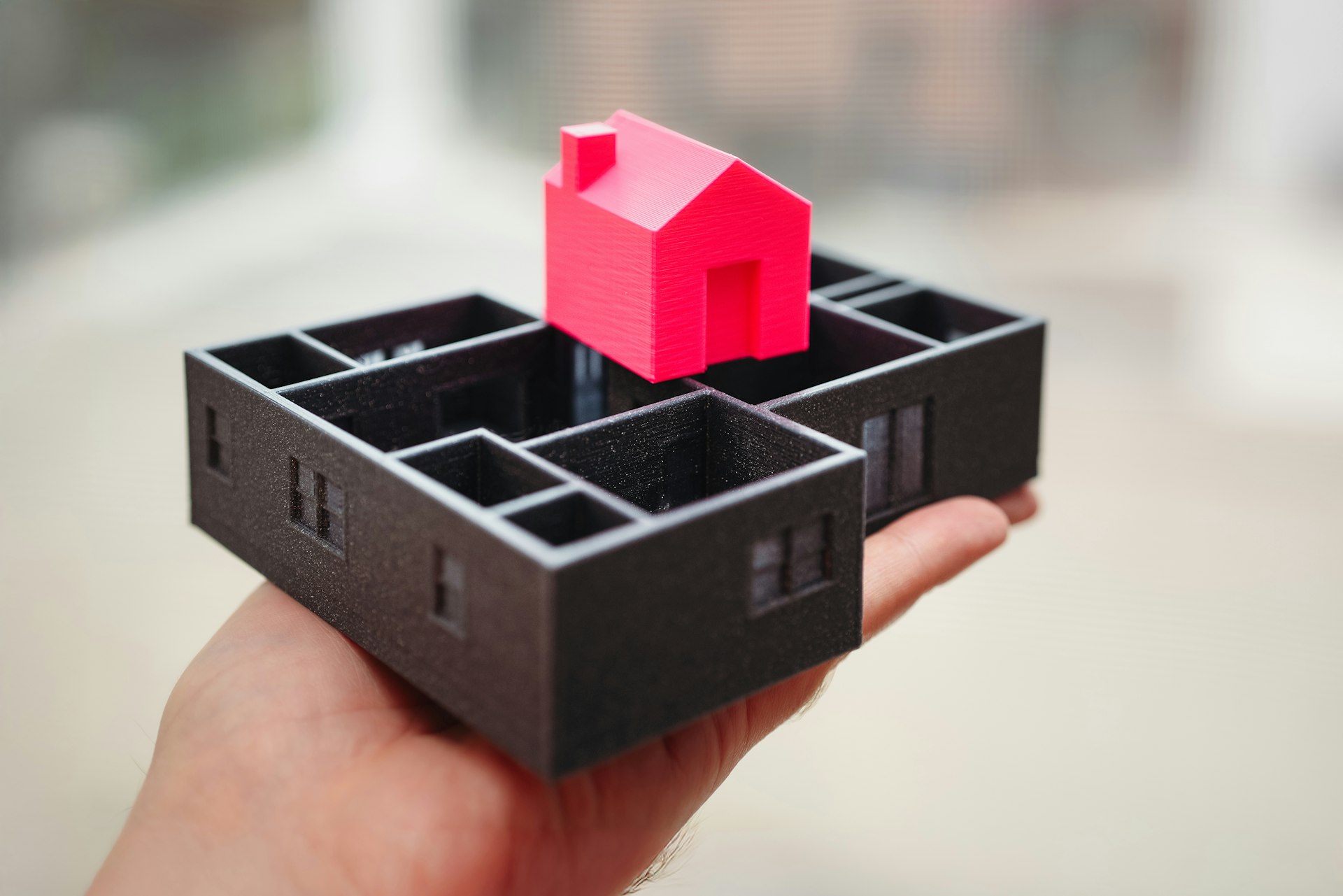How Smart Homes Are Transforming the Real Estate Market: Trends, Value, and What Comes Next


Photo by Jakub Żerdzicki on Unsplash
The Rise of Smart Homes in Real Estate: A New Standard
The real estate market in 2025 is experiencing a fundamental transformation as smart homes become not just a luxury, but an expected feature for buyers and investors. Homeowners and property managers are turning to automation, artificial intelligence (AI), and the Internet of Things (IoT) to boost convenience, security, and efficiency. These technologies are now core drivers of property value, buyer demand, and competitive differentiation in the market. [2] [3]
What Defines a Smart Home in 2025?
A modern smart home integrates a network of devices-thermostats, lighting, security systems, appliances, and more-into a connected ecosystem. These systems are managed through centralized platforms, voice assistants, or mobile apps, allowing users to monitor and control their homes remotely. [1] [3]
Major Trends Shaping the Future of Smart Homes in Real Estate
1. AI-Powered Personalization and Predictive Automation
AI-driven smart assistants like Amazon Alexa, Google Assistant, and Josh are evolving rapidly. These platforms now provide contextual understanding, learning user habits to automate daily routines such as adjusting thermostats, controlling lighting, or even managing energy consumption. The next wave of smart assistants uses predictive analytics to anticipate needs, making the home environment more intuitive. [1]
For example, AI can automatically dim lights in unused rooms or optimize HVAC settings based on real-time weather patterns. To implement these features, homeowners can consult with certified smart home installers or start with entry-level devices such as smart thermostats and voice-controlled lights. Many retailers and service providers now offer bundled packages, but it is essential to check the compatibility of new devices with your existing ecosystem.
2. Energy Efficiency and Sustainability
Smart home technology is leading the push for greener, more energy-efficient properties. Systems like smart thermostats, AI-driven climate controls, and automated window shades help reduce utility consumption and environmental impact. [1] [3]
To access these benefits, homeowners can:
- Install smart thermostats from reputable brands (such as ecobee or Nest) that learn occupancy patterns and adjust heating/cooling accordingly.
- Adopt automated window treatments that respond to sunlight, reducing the need for artificial lighting and air conditioning.
- Explore solar panel integration and battery storage solutions for energy independence.
For guidance, you should consult energy auditors or certified green building professionals. Many local governments and utility providers may offer rebates or incentives for energy-efficient upgrades. Search your local utility website or municipal sustainability office for current programs.
3. Universal Connectivity and Interoperability
A top challenge for homeowners in 2025 is achieving seamless integration among various smart devices. Universal connectivity standards are evolving, making it easier to connect lighting, security, and entertainment systems across brands. [3]
To ensure compatibility and future-proof your investments:
- Choose devices that support open protocols (such as Matter or Zigbee).
- Work with installers familiar with the latest universal standards.
This approach allows for easier upgrades and reduces the risk of obsolescence. Buyers should ask sellers and agents about the interoperability of installed systems before purchase.
4. Enhanced Security and Remote Monitoring
Smart security systems provide real-time surveillance, threat detection, and remote control for locks, cameras, and alarms. Features such as facial recognition and motion alerts are making properties safer and more attractive to buyers. [2] [3]
Property managers can monitor building conditions and safety remotely, reducing maintenance costs and improving tenant satisfaction. If you are upgrading a property, consult with certified security system providers and check for compliance with local privacy regulations.
5. Data Analytics and Predictive Insights
Big data analytics is now central to real estate investment and management. By analyzing data from smart devices, agents and property owners can gain actionable insights into market trends, buyer preferences, and building performance. [4]
Modern analytics platforms can help agents identify high-potential leads, optimize marketing campaigns, and assess the impact of smart technology upgrades. If you are an agent or investor, consider adopting analytics tools from established real estate technology providers to stay ahead of market shifts.
6. Blockchain, Smart Contracts, and Digital Twins
Blockchain is revolutionizing real estate transactions by enabling secure, transparent, and efficient deals. Smart contracts automate the execution of purchase agreements, reducing the need for intermediaries and minimizing fraud risk. [2] [5]
Digital twins-virtual replicas of physical properties-allow owners and managers to simulate performance, plan maintenance, and optimize operations using real-time IoT data. These technologies may require specialized service providers; search for blockchain-enabled real estate platforms or digital twin consultants in your region.
The Value Proposition: Why Smart Homes Matter in Real Estate
Properties with advanced smart features consistently command higher prices and often sell faster. [2] [3]
According to Fortune Business Insights, the global smart home market is projected to grow from $80 billion in 2022 to $338 billion by 2030. In the U.S., over 69 million homes are expected to be smart-enabled by 2025. These statistics demonstrate the growing investment returns and buyer demand for smart-enabled living environments. [3]

Photo by Salman Saqib on Unsplash
For buyers, the key benefits include improved comfort, energy savings, and enhanced security. For sellers and agents, smart upgrades are a strong differentiator in a competitive market.
How to Access Smart Home Opportunities
Whether you are buying, selling, or managing real estate, there are practical steps you can take to benefit from the smart home revolution:
For Homebuyers
- During property tours, ask agents for a detailed list of smart features, including device brands, installation dates, and compatibility with your preferred platforms.
- Request documentation showing energy savings, security certifications, and maintenance records for installed smart systems.
- If you have specific needs (such as accessibility or security), consult with a certified smart home consultant for tailored recommendations.
For Sellers and Agents
- Highlight smart home features in marketing materials, focusing on benefits like energy efficiency, convenience, and security.
- Provide potential buyers with how-to guides and contact information for local service providers who can help them upgrade or expand the system.
- Stay informed of local laws regarding privacy, data protection, and smart device installation.
For Investors and Property Managers
- Consider retrofitting older properties with smart upgrades to boost rental yields and tenant retention.
- Leverage analytics platforms to monitor performance and optimize maintenance schedules.
- Explore partnerships with technology vendors or property management companies specializing in smart home solutions.
Implementation: Step-by-Step Guidance
1. Assessment: Evaluate your current property for upgrade potential. Consider the infrastructure (Wi-Fi, wiring, existing devices) and identify which smart systems align with your priorities.
2. Research: Use trusted industry publications, consumer reports, and local trade associations to compare products and service providers. Check for customer reviews and certifications.
3. Budgeting: Estimate upgrade costs based on required devices and professional installation. Contact local providers for quotes and ask about rebates or financing options from your utility or municipality.
4. Installation: For basic systems (like smart plugs or lights), follow manufacturer instructions. For advanced or whole-home solutions, hire certified installers.
5. Integration: Confirm that all devices are compatible with your chosen ecosystem and connect them to a central hub or app for unified control.
6. Education: Learn how to use your new systems, set up automation routines, and understand privacy and security settings.
7. Maintenance: Regularly update device firmware, review security settings, and schedule professional check-ups as needed.
Overcoming Challenges and Exploring Alternatives
Some homeowners may face challenges such as high upfront costs, compatibility issues, or privacy concerns. To address these:
- Start small with scalable systems and expand as needed.
- Consult with certified professionals to ensure secure installation and data protection.
- Research alternatives such as DIY solutions or modular devices that allow gradual upgrades.
If you encounter barriers, contact your local real estate board, technology trade association, or smart home consultant for support and referrals.
Key Takeaways
Smart homes are redefining real estate for buyers, sellers, and investors alike. With the right approach, anyone can access advanced features that boost property value, sustainability, and quality of life. Stay informed, seek expert guidance, and leverage available incentives to make the most of this fast-evolving market.
References
- [1] Eco Smart Home Pros (2025). The Future of Smart Homes: Top Technology Trends.
- [2] Olde Town Brokers (2025). Real Estate Technology Trends to Watch in 2025.
- [3] Raleigh Realty (2025). 7 Smart Home Trends in 2025.
- [4] MaverickRE (2025). Real Estate Tech Trends 2025: Market & Industry Analysis.
- [5] BFPMinC (2025). Top 12 Real Estate Technology Trends for 2025.






